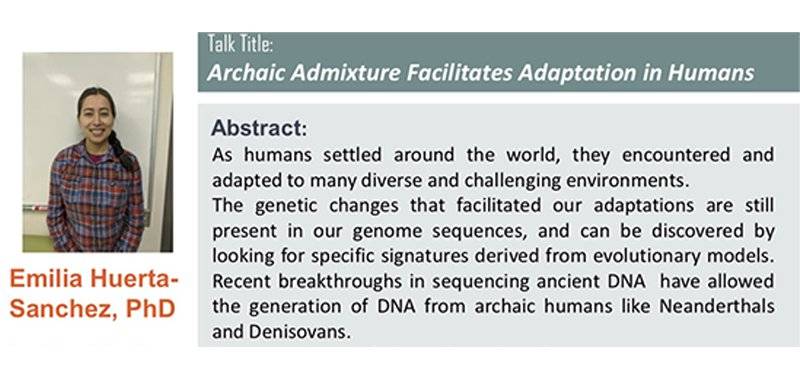Oct 11, 2018–Oct 11, 2018 from 12:00pm–1:00pm
Emilia Huerta-Sanchez (Brown University), Archaic admixture facilitates adaptation in humans.

Talk by Emilia Huerta-Sanchez (Assistant Professor at Brown University in the Department of Ecology and Evolutionary Biology and the Center for Computational Biology) on Archaic admixture facilitates adaptation in humans in the Tibetan region. As humans settled around the world, they encountered and adapted to many diverse and challenging environments. The genetic changes that facilitated our adaptations are still present in our genome sequences, and can be discovered by looking for specific signatures derived from evolutionary models. Recent breakthroughs in sequencing ancient DNA have allowed the generation of DNA from archaic humans like Neanderthals and Denisovans. By comparing archaic and modern human genomes, we can detect remnants of archaic DNA in present-day human genomes, suggesting that they interbred in the past. In this talk I describe how archaic variants are distributed across individuals from different human populations and how admixture from archaic humans likely accelerated adaptations to local environments such as different diets, pathogens, temperatures and altitudes.
Date and Time
Oct 11, 2018–Oct 11, 2018
from 12:00pm–1:00pm
Location
Event Registration
Registration is not required for this event.
Event Fee
Free
Contact
South Asia Initiative at UC San Diego • southasiaucsd@gmail.com
Audience
Faculty, Staff, Students, The General Public
Event Host
South Asia Initiative at UC San Diego & CSE